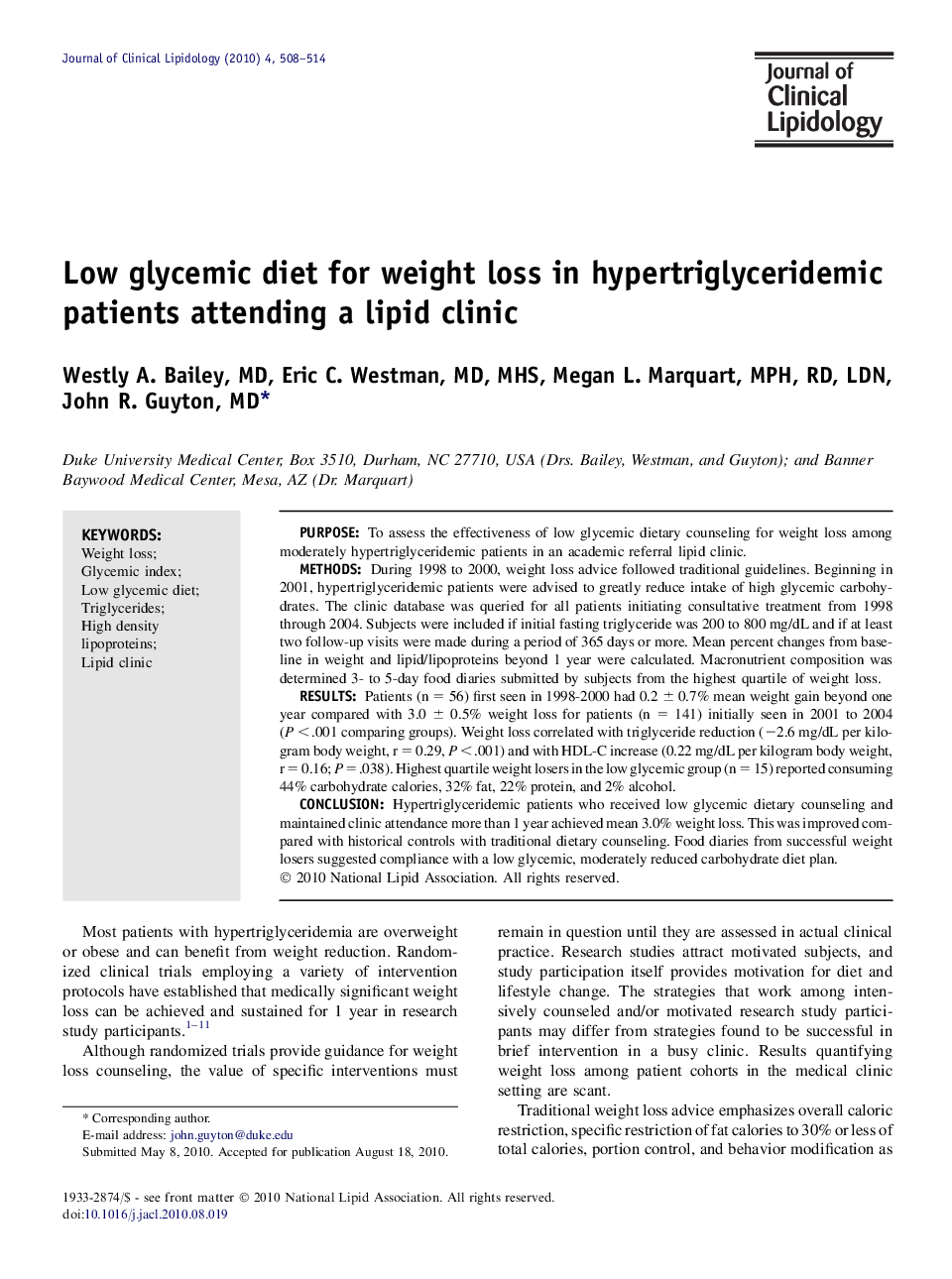| Article ID | Journal | Published Year | Pages | File Type |
|---|---|---|---|---|
| 2966148 | Journal of Clinical Lipidology | 2010 | 7 Pages |
PurposeTo assess the effectiveness of low glycemic dietary counseling for weight loss among moderately hypertriglyceridemic patients in an academic referral lipid clinic.MethodsDuring 1998 to 2000, weight loss advice followed traditional guidelines. Beginning in 2001, hypertriglyceridemic patients were advised to greatly reduce intake of high glycemic carbohydrates. The clinic database was queried for all patients initiating consultative treatment from 1998 through 2004. Subjects were included if initial fasting triglyceride was 200 to 800 mg/dL and if at least two follow-up visits were made during a period of 365 days or more. Mean percent changes from baseline in weight and lipid/lipoproteins beyond 1 year were calculated. Macronutrient composition was determined 3- to 5-day food diaries submitted by subjects from the highest quartile of weight loss.ResultsPatients (n = 56) first seen in 1998-2000 had 0.2 ± 0.7% mean weight gain beyond one year compared with 3.0 ± 0.5% weight loss for patients (n = 141) initially seen in 2001 to 2004 (P < .001 comparing groups). Weight loss correlated with triglyceride reduction (−2.6 mg/dL per kilogram body weight, r = 0.29, P < .001) and with HDL-C increase (0.22 mg/dL per kilogram body weight, r = 0.16; P = .038). Highest quartile weight losers in the low glycemic group (n = 15) reported consuming 44% carbohydrate calories, 32% fat, 22% protein, and 2% alcohol.ConclusionHypertriglyceridemic patients who received low glycemic dietary counseling and maintained clinic attendance more than 1 year achieved mean 3.0% weight loss. This was improved compared with historical controls with traditional dietary counseling. Food diaries from successful weight losers suggested compliance with a low glycemic, moderately reduced carbohydrate diet plan.
